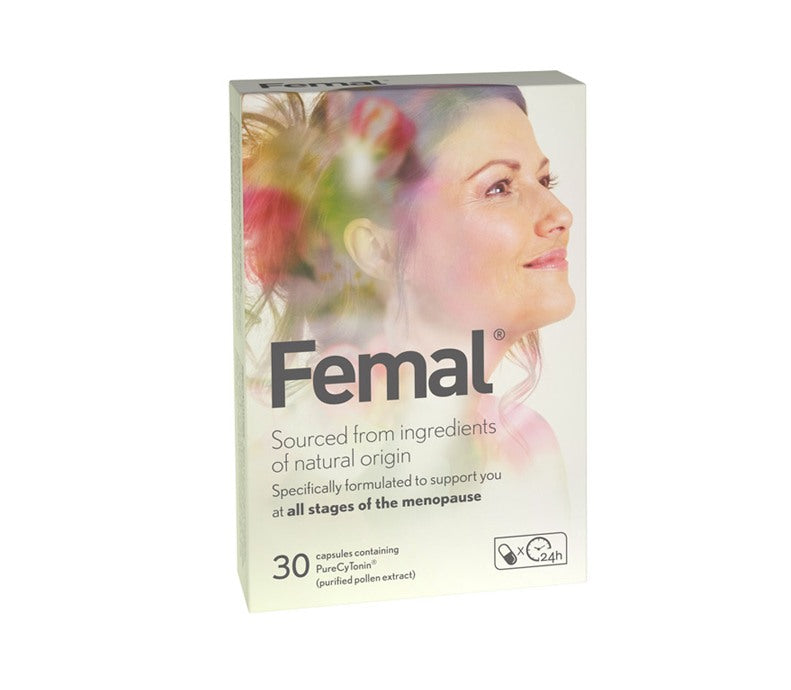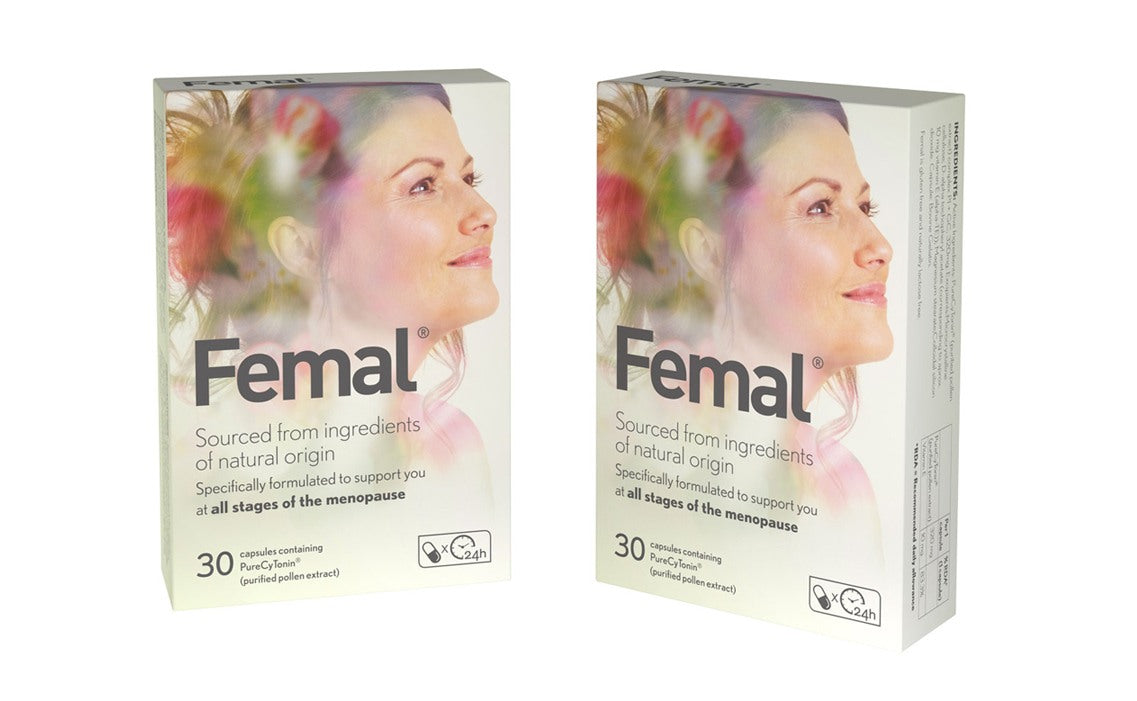Sex and the Menopause

Menopause affects your body in a myriad of different ways, and so it’s no surprise that it can affect both your sex drive and sexual confidence. The depletion of oestrogen and testosterone has both physical and mental effects on your body, which can leave you feeling worried about or even disinterested in sex.1 In this article we’ll discuss the most common sex-related symptoms of menopause, and changes which you can make to ensure you continue to enjoy sex during and after menopause.
It’s not just you
The first thing to understand is how common it is for women to experience changes in their sex drive during and after menopause. In addition to a general drop in libido, the most common symptoms women describe include difficulty becoming aroused, and diminished sensitivity to touching and stroking.2 Lower levels of oestrogen can cause the blood supply to the vagina to drop, which affects vaginal lubrication.2 This can lead to discomfort or even pain during sex.2 Changes to the elasticity of the vaginal tissue and lining of the urethra, combined with a weakening of the pelvic floor, can also lead to bladder control issues, which naturally also impacts sexual confidence.3
Hot flushes, night-time sweats and menopause-induced insomnia4 can also all affect your desire to have sex. If you’re not sleeping well, or feel uncomfortable at night, then the last thing you want to do is have sex!
Menopause can also lead to depression, anxiety and stress,4,5 all of which can have a knock-on effect to your libido and your body’s sexual responses.
Taking back control
So, what can you do? Well, having recognised the symptoms and acknowledged that they are related to menopause, there are a number of ways which you can directly tackle them.
Firstly, in terms of arousal, take some time alone to work out what turns you on. This might be visual stimuli, vibrators and sex toys, or being touched in particular places. Masturbation can be a great opportunity to try new things, and better understand your changing body. You can then communicate the results of your research to your partner!
Communication is obviously a key part of relationships, but many menopausal women find it uncomfortable to discuss their symptoms with their partner. If you fall into that group, don’t worry – by working out alternative methods which help to increase your libido and enjoyment, you can present the solution to your partner, without necessarily having to discuss the issue. Alternatively, if it suits you and your relationship better, involve your partner in the experimentation stage and explore all the options above together.
Make the most of new products
One of the great things about living in 2020 is that there are constantly new innovations and products designed specifically to tackle the discomforts of menopause.
In terms of vaginal lubrication, there are a number of moisturisers which have been specially designed to tackle menopause-related dryness and help keep the vaginal walls supple. These creams can help deal with dryness, itching, burning or pain during sex. The creams can be applied both internally and externally on a daily basis before bed, and also applied directly before intercourse. These days there are also hundreds of different options of lubricants available, for use during sex. Again, take some time to work out what works best for you and your partner. Silicon-based lubricants tend to provide the greatest amount of lubrication and are less likely to irritate your skin than water-based lubricants, however they can be more expensive than other lubricants and are not always stocked in shops.
Meanwhile hot flushes and night sweats can be tackled using specially designed nightwear and bedding, which adapt to your changing body temperature and wick away moisture, helping you to keep your sleep uninterrupted. The better rested you are, the more confident and happy you’re likely to feel.
Get active and stay safe
If you’ve noticed the menopause affecting your mental state – either in terms of stress, depression, or anxiety – in addition to seeking medical support, try to increase your levels of activity. Introducing regular physical exercise to your routine – whether it’s a gym class, the occasional jog, or a daily brisk walk – will help increase your endorphin levels, and it’s amazing the effect body confidence can have on your libido.6
If you encounter new partners, or are sleeping with someone who hasn’t had an sexually transmitted disease (STD) check, do remember to stay safe. While unwanted pregnancy may no longer be a consideration, STD’s are an issue regardless of your age. Condoms are the easiest way to prevent the spread of STD’s, but do check that any lubrication you use is compatible with the latex, as some lubricants can degrade condoms. These days it’s very quick and easy to be tested for STDs. If you encounter a new sexual partner, why not get tested together before having unprotected sex?
And finally, like most things in life, a lot can be solved through communication. If something is troubling you, share it with someone – whether that’s a doctor, a therapist, a partner or a friend. As we said at the start, most women experience these symptoms, so you are never alone, and whatever the issue, we promise the doctors will have heard it all before. A problem shared really is a problem halved, so speak up, and start enjoying yourself again.
For more insights, and to hear about other women’s menopause journeys, click here [www.femal.co.uk/pages/expressyour] or join the conversation on social media with #ExpressYourFemal.
References
- National Health Service. Loss of libido (reduced sex drive) [online] January 2020. Available from: https://www.nhs.uk/conditions/loss-of-libido/ [Last accessed: January 2020].
- Cleveland Clinic. Sexual Dysfunction and Disease [online] October 2019. Available from: https://my.clevelandclinic.org/health/diseases/9125-sexual-dysfunction-and-disease [Last accessed: January 2020].
- Menopause and Bladder Control Management [online]. Available from: https://www.webmd.com/urinary-incontinence-oab/womens-guide/bladder-control-menopause#1 [Last accessed: January 2020].
- Everything You Should Know About Menopause [online]. Available from: https://www.healthline.com/health/menopause [Last accessed: January 2020].
- What is the link between menopause and anxiety? [online]. Available from: https://www.medicalnewstoday.com/articles/317552.php [Last accessed: January 2020].
- Low libido: how to increase sex drive for women [online]. October 2019. Available from: https://www.netdoctor.co.uk/conditions/sexual-health/a2220/lack-of-sex-drive-in-women-lack-of-libido/ [Last accessed: January 2020].

Femal One Pack
30 capsules - 1 Month Supply
Customer loyalty programme*:
*Discount code not applicable on loyalty programme
Free shipping

Femal Two Pack
60 capsules - 2-Month Supply
Customer loyalty programme*:
*Discount code not applicable on loyalty programme
£56.31
Free shipping
